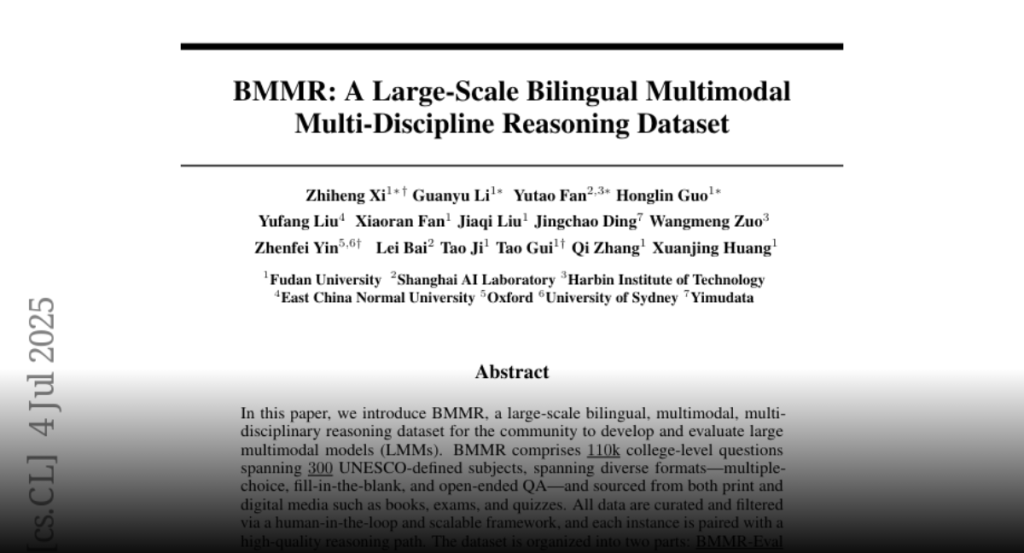A large-scale dataset and verification tool are introduced for assessing and improving cross-disciplinary reasoning capabilities in multimodal models.
In this paper, we introduce BMMR, a large-scale bilingual, multimodal,
multi-disciplinary reasoning dataset for the community to develop and evaluate
large multimodal models (LMMs). BMMR comprises 110k college-level questions
spanning 300 UNESCO-defined subjects, spanning diverse formats-multiple-choice,
fill-in-the-blank, and open-ended QA-and sourced from both print and digital
media such as books, exams, and quizzes. All data are curated and filtered via
a human-in-the-loop and scalable framework, and each instance is paired with a
high-quality reasoning path. The dataset is organized into two parts: BMMR-Eval
that comprises 20,458 high-quality instances to comprehensively assess LMMs’
knowledge and reasoning across multiple disciplines in both Chinese and
English; and BMMR-Train that contains 88,991 instances to support further
research and development, extending the current focus on mathematical reasoning
to diverse disciplines and domains. In addition, we propose the process-based
multi-discipline verifier (i.e., BMMR-Verifier) for accurate and fine-grained
evaluation of reasoning paths. Extensive experiments on 24 models reveal that
(i) even SOTA models (e.g., o3 and Gemini-2.5-Pro) leave substantial headroom
on BMMR-Eval; (ii) reasoning models exhibit discipline bias and outperform LMMs
only on specific subjects; (iii) open-source models still trail their
proprietary counterparts; and (iv) fine-tuning on BMMR-Train narrows this gap.
Additionally, we conduct reasoning-chain analyses using BMMR-Verifier and other
in-depth studies, uncovering the challenges LMMs currently face in
multidisciplinary reasoning. We will release the data, and we hope our work can
offer insights and contributions to the community.

